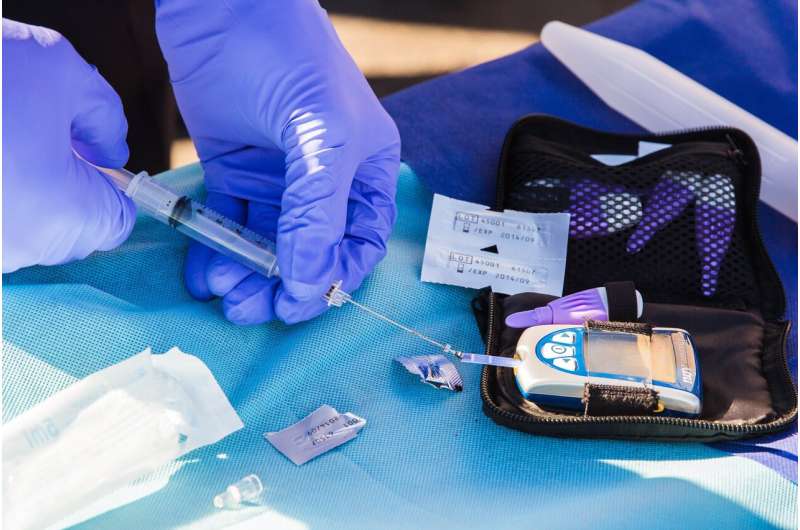Genetic Link Between Salivary Enzyme and Type 2 Diabetes Uncovered

Recent research suggests that the number of copies of the salivary amylase gene (AMY1) may influence the risk of developing type 2 diabetes, offering new possibilities for early prediction and prevention.
Recent research has shed light on the potential genetic factors influencing the risk of developing type 2 diabetes, particularly focusing on the gene responsible for producing an enzyme in saliva that breaks down starch. For years, scientists have investigated the relationship between the salivary enzyme amylase—produced by the AMY1 gene—and the onset of type 2 diabetes, but conflicting findings have kept the connection ambiguous.
A new study published in July 2025 in PLOS One offers promising insights. It confirms that individuals carrying more copies of the AMY1 gene tend to produce higher levels of salivary amylase. Although previous research methods, such as qPCR, led to inconsistent results, this study used both qPCR and digital PCR techniques, ensuring more accurate measurements of AMY1 gene copies. The findings suggest that a higher gene copy number might offer some protection against type 2 diabetes, though further long-term studies are necessary to establish definitive proof.
Salivary amylase initiates the digestion of starches into sugars, a process that, if overly efficient, was thought to possibly contribute to increased blood glucose levels in diabetics. However, the current research suggests a different story. It indicates that individuals with more copies of the AMY1 gene also exhibit higher salivary amylase activity throughout the day, especially after meals, which may help regulate blood glucose levels more effectively.
Interestingly, the study observed that people with diabetes or prediabetes tend to have higher salivary amylase activity per gene copy compared to healthy individuals. This could imply that those with more AMY1 copies experience a quicker response to starch consumption, prompting earlier insulin release. Such a mechanism might explain why a greater gene copy number could be protective, assisting in better blood sugar regulation.
Angela Poole, an expert in molecular nutrition, emphasized the importance of standardizing research methods, such as collecting saliva samples at the same time of day to account for natural fluctuations in enzyme activity. The research team also highlighted that when controlled for technical accuracy, different testing methods produce comparable results, dispelling doubts about previous conflicting findings.
While the findings are promising, the researchers stress that diet and lifestyle factors must also be considered. Future studies, involving larger participant pools and controlled dietary interventions, are essential to confirm whether genetic testing for AMY1 copy number at birth could predict the risk of developing type 2 diabetes. Such advancements could pave the way for early prevention strategies, allowing individuals to make informed lifestyle choices from an early age, potentially reducing the disease’s prevalence.
This groundbreaking research was led by Sri Lakshmi Sravani Devarakonda, with contributions from Jennifer Ren. The study underscores the complex interplay between genetics, digestion, and metabolic health, opening new avenues for personalized approaches to managing and preventing diabetes.
Source: https://medicalxpress.com/news/2025-07-gene-enzyme-saliva-diabetes.html
Stay Updated with Mia's Feed
Get the latest health & wellness insights delivered straight to your inbox.
Related Articles
AI Algorithm Successfully Predicts Hot Flashes in Women During Menopause
A pioneering AI algorithm can accurately predict hot flashes in women during menopause, enabling real-time interventions to improve comfort and health. Researchers aim to incorporate this technology into wearable devices for effective symptom management.
Enhancing Gait Analysis with Synthetic Data: AI Models Trained on Simulated Movements Match Real-World Performance
Scientists have developed AI models for gait analysis trained exclusively on synthetic data generated through physics-based simulations. These models match or surpass traditional approaches, offering scalable solutions for diagnosing neurological and musculoskeletal disorders across diverse populations.
Multiple Chronic Conditions Significantly Increase Depression Risk, Study Finds
A recent study reveals that individuals with multiple chronic health conditions, especially combinations like diabetes and heart disease, face more than double the risk of developing depression. Integrated care approaches are essential to address this complex health challenge.
Vancomycin Shows No Significant Effect in Preventing Recurrent C. difficile Infections
A recent clinical trial reveals that low-dose oral vancomycin does not significantly reduce the recurrence of Clostridioides difficile infections in adults, highlighting the need for further research in this area.



